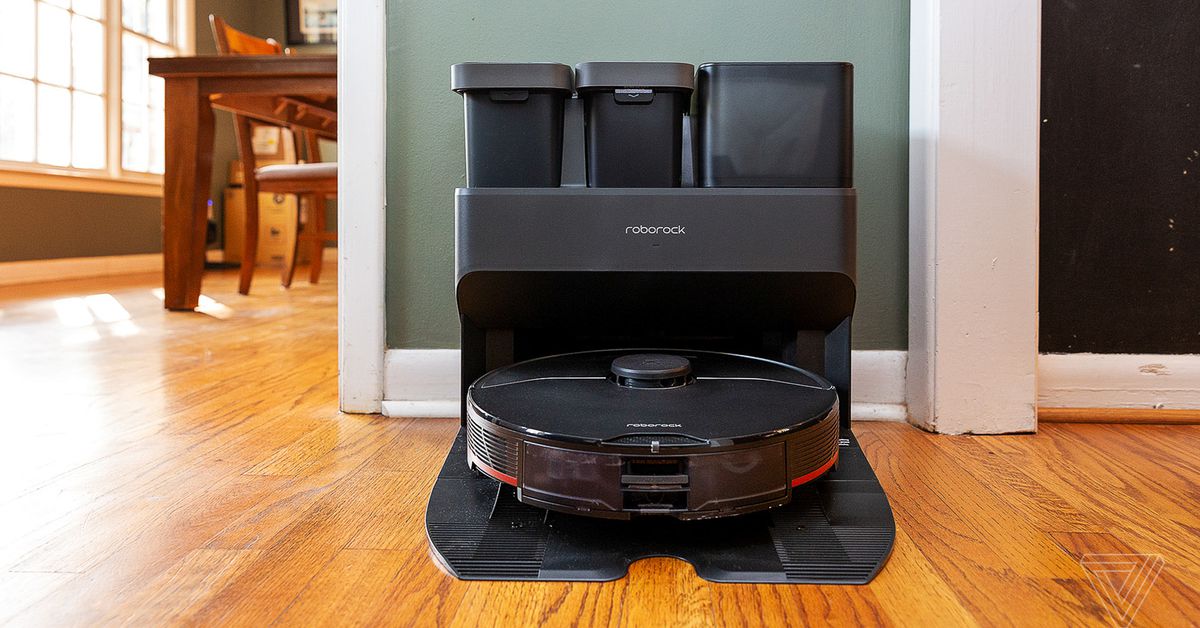Garmin brings OLED displays to its latest Forerunner watches
The Garmin Forerunner 265, 265S, and 965 will all sport always-on OLED displays. | Image: GarminGarmin’s Forerunner 265 and Forerunner 965 watches have just landed. And in a first for the line, both sport shiny always-on OLED touchscreens. The...
/cdn.vox-cdn.com/uploads/chorus_asset/file/24470380/20221107_Social_FIT_6030_RGB.jpeg)
Garmin’s Forerunner 265 and Forerunner 965 watches have just landed. And in a first for the line, both sport shiny always-on OLED touchscreens. The Forerunner series comprises Garmin’s midrange, lightweight GPS watches for runners (and triathletes), making the shift to OLED an interesting choice. That crowd tends to favor outdoor readability and long battery life — two things that smartwatches with OLED displays aren’t always the best at.
The Forerunner 265 will cost $449.99 and measures 46mm. Like last year’s model, it’ll also come in a smaller “S” size that measures 42mm. The Forerunner 965 is the next step up at $599.99, with a 47mm case and a titanium bezel. Feature-wise, not a whole lot has changed since last year. All three watches will have multiband GPS, the Morning Report feature and race widget that were introduced last year, and Garmin’s suite of training features and metrics (e.g., Garmin Coach, PacePro, daily suggested workouts, running power and dynamics, etc.) For smarts, the watches will support push notifications, Garmin Pay, and offline playlists from Spotify, Deezer, or Amazon Music. The main difference is the 965 gets real-time stamina tracking, built-in maps, ClimbPro, and a new training load ratio feature. The latter allows users to track how much they’ve taken on in the short and mid-term to help prevent injury.
Image: Garmin
Otherwise, the most noticeable update is the always-on OLED display. Previously, Garmin’s Forerunner lineup had memory-in-pixel displays. While MIP displays can be difficult to read in dimmer indoor lighting, they’re easier to read under direct sunlight and aren’t as much of a battery drain. When I reviewed last year’s Forerunner 255S, I ended up getting roughly 25 days on a single charge.
I’ve been playing around with the Forerunner 265S for a couple of days, and I have to say the OLED display is quite snazzy. The widgets look crisp, the colors are vibrant, the watch faces have more pizzazz, and the little animated transitions make this feel like a smarter watch than its predecessor — even if they have much of the same specs under the hood. Button fans shouldn’t be too worried about the touchscreen aspect. All the watches include Garmin’s signature five-button navigation system, and you can still lock the touchscreen during activity.
So far, I can’t comment on battery life without more in-depth testing. That said, I’m only down to 73 percent with regular use over two days, though that’s without the always-on display and multiband GPS enabled. We’ll have to see how much of an impact enabling more power-hungry features will have. Garmin says the Forerunner 265S ought to get 15 days in smartwatch mode and 24 hours of GPS activity. The regular 265 gets a bit less, with an estimated 13 days and 20 hours of GPS. Meanwhile, the 965 is rated for 23 days and 31 hours of GPS.
Image: Garmin
As for brightness, Garmin’s press release only says the displays should be readable “no matter the weather conditions.” While that is marketing speak, it’s not completely wrong either. OLED displays generally are easier to read in dimmer lighting, on overcast days, and at night. I asked Garmin if it could share how many nits of brightness each watch reaches but didn’t immediately receive a response.
Regardless of how you might feel about Garmin adding OLED displays to Forerunner watches, the move is part of a larger trend in the company’s product strategy. Over the past few years, Garmin has been steadily beefing up its lifestyle offerings and smart capabilities. You can see it most on the Venu 2 Plus, which added voice assistant compatibility and now has FDA-cleared EKGs for atrial fibrillation detection. Meanwhile, last month it launched the Vivomove Trend and added Qi wireless charging. So from that lens, it makes sense to add a more technologically advanced display to the Forerunner.
The Forerunner 265 and 265S are available starting today. Both will cost $249.99. The Forerunner 965 is expected to arrive in late March for $599.99.

 Koichiko
Koichiko 
































